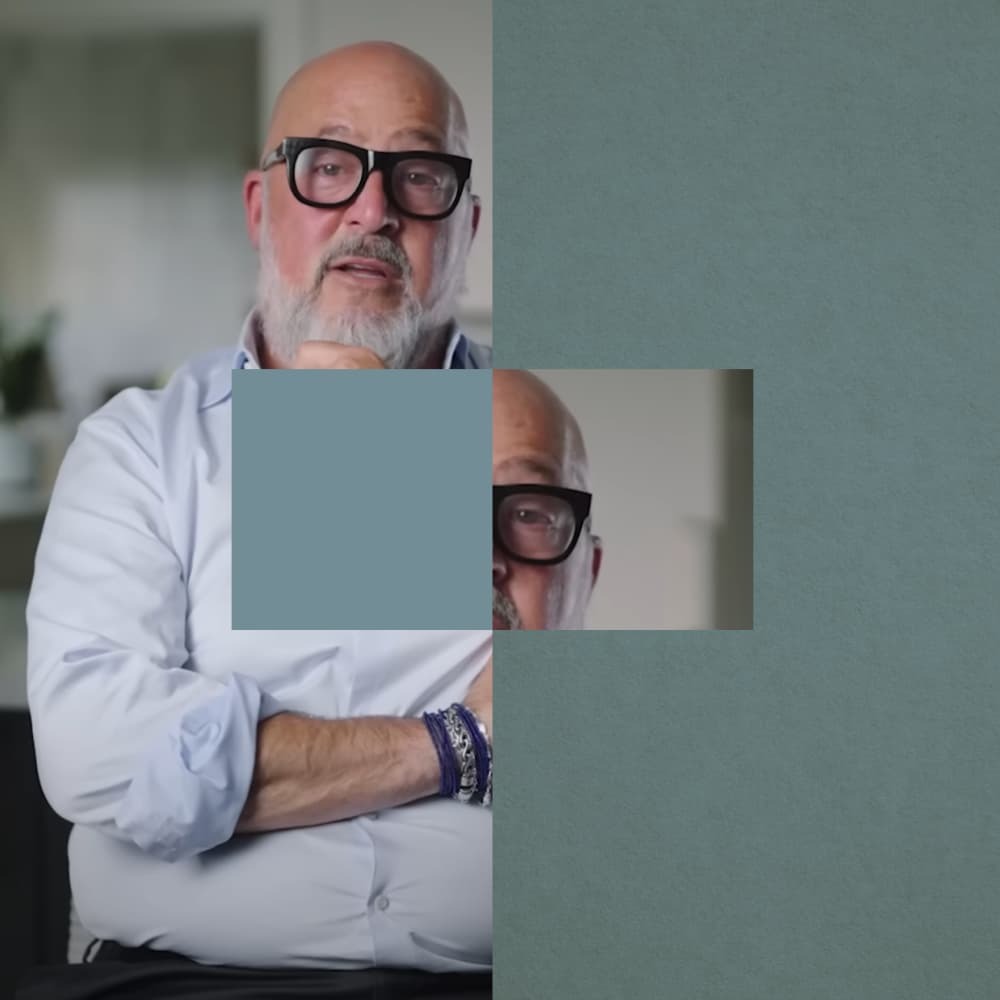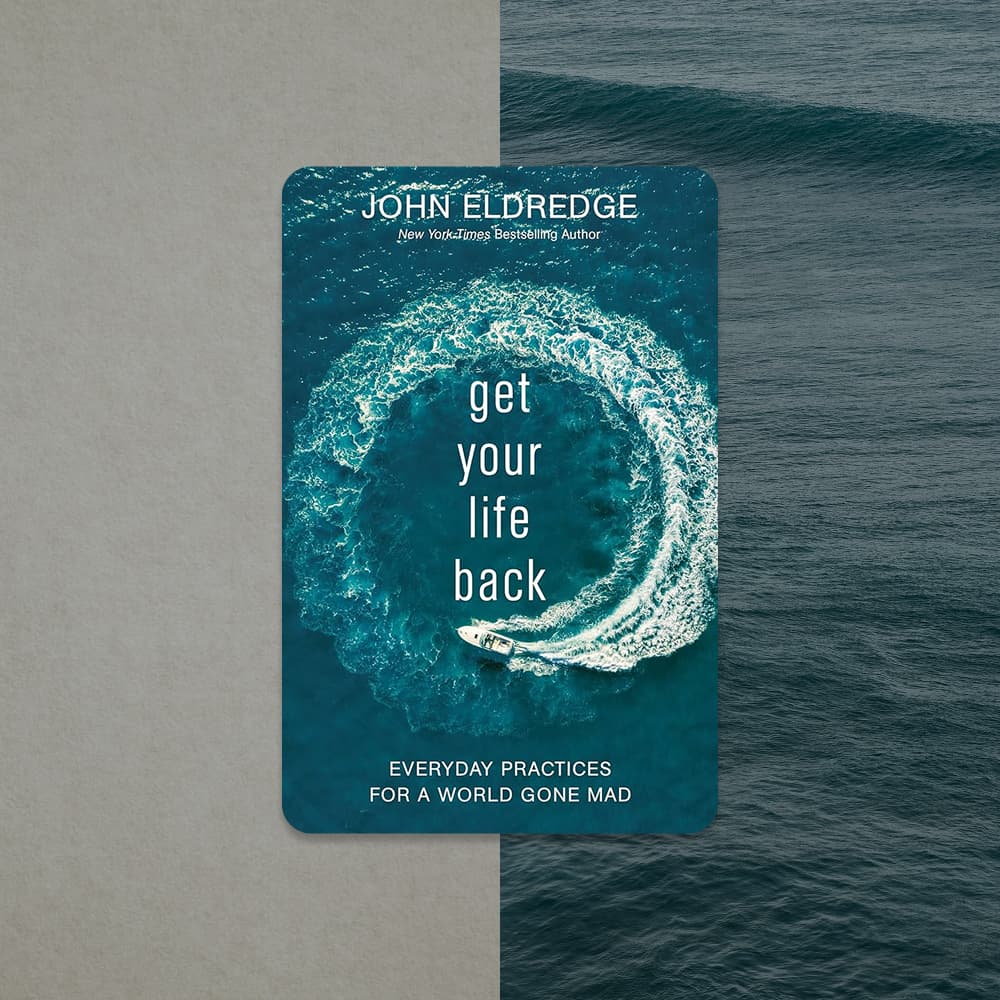Do you believe you have value? Why?
It’s a shocking question because we all might want to say: “Yes, of course.”
But maybe someone secretly thinks: I don’t actually know.
And others: “I don’t have value.” (or I am not valuable.)
How do we decide these measurements in life? Do we have value when or if we are loved? If we work hard? intelligent? If we bring happiness and joy to others? But – what about at our lowest points? When we’ve made a mistake or hurt someone we love?
In this video, Andrew Zimmerman, American chef and personality TV host, tells his story about moving from one place of shame to another – and up until his breaking point when everything in his life changed forever. Where he came face to face with this question of redemption.
Watch this video before continuing on in the article.
(*Warning – this video mentions drug, alcohol, sexual content, and brief language*)
A foundation of shame
It’s inevitable that our parents shape us – for good and bad. Andrew talked about growing up in a home where his dad shut down his emotions and his mother was unable to be present to him. It inevitably set the tone for how he would approach his own life and emotions.
But there’s something in all of us that feels the injustice in his childhood – he should not be denied love. Even if we know his parents were maybe doing the best with what they knew how to do, it still feels unfair and undeserved.
Questions to Consider:
- Why does this story set up the tone for perseverance?
- What is unfair about Andrew’s upbringing?
- How do we come to know that he deserves love?
We all learn how to cope.
For Andrew, much of his story was wrapped up in a cycle of drugs and alcohol as a way to manage his loneliness, shame, and lack of connection. It went from coping with discomfort, to an addiction he couldn’t live with– or without.
At an early age, he learned a certain set of values and ways to go about the world. It was what he knew to be true and what he knew to be the way to live, survive, and maybe even at that time–what he knew of being able to thrive. But it took a moment of deep suffering to realize that his downward trajectory was neither what he wanted out of life nor was it his only option.
It got to the point where these coping mechanisms became his only guide. His desire and need to get ahold of drugs became the only thing to determine his direction, values, and priorities.
“It became my higher power. There is not a moral line that I had in the sand that I didn’t cross as an addict and alcoholic. “
What are ways you deal with stress in your life?
If your “addiction” or “coping mechanism” in life is escaping to a good book, a fun podcast, or getting busy with friends, this idea might feel lacking. So what if you read a lot? It doesn’t necessarily confront your morality.
But it does come down to – what are you not willing to face? What keeps you up at night that is just not going away?
Like Andrew, sometimes reality is too much. The pain of what’s before us feels overwhelming. But the more we run, oftentimes, the more we can (potentially) keep avoiding something that might need attention.
The hinge event.
“I did nothing - nothing - to deserve that pause in the shame cycle of my life to have 30 seconds of clarity to say can you help me.”
It’s not always a momentous event like Andrew’s, but for a lot of us, we have turning points in our life that feel like a big decision or something that happened to us. Sometimes that is a moment where we feel our lowest, and sometimes that is a moment where we feel unbreakable.
Questions to Consider:
- Where do you think your life is headed right now?
- Are you wishing for a turning point?
- Andrew walked a long road of suffering before he came to a turning point in life. What do you make of his suffering?
“Sprinkle a human who is irremediable with love, dignity and respect and human beings can recover from anything.”
What does this mean to you? It might be easy to picture someone in your mind who has really messed up and hurt you – but what about when you’ve messed up?
Questions to Consider:
- Have you been offered love, dignity, and respect when you’ve messed up?
- What makes you worth receiving those things?
- What makes others worth receiving those things?
- How do we give it? How do we get it?
- Do you think this is a universal value?
We all go through suffering. We all are wrong sometimes. And it’s an important thing to think about because how we treat others and ourselves in maybe the worst moments – says a lot about how we see the world, and sets the tone for almost everything in our life. Think about it: how we see the human person impacts how we treat the barista in line, how we think about our neighbors, how we treat our friends, and even how we view our own value.
A discovered purpose
So… maybe your life feels similar to Andrew’s, or maybe it feels very far away.
But let’s go back to Andrew’s line one more time: “Sprinkle a human who is irremediable with love, dignity and respect and human beings can recover from anything.”
Do you believe this?
It can be difficult to “see through the trees” as they say. Sometimes our life gets so bogged down with one little decision or lack of decision – over and over again.
But what if there was a way to find your purpose? One that you actually felt made for.
Take an inventory of what you’re doing this week with your time, energy, thoughts, money. Take time to dream a little. If you could start with a clean slate – What would you want your life to be about? Not your job or what you do but the meaning and purpose behind the one life you have to live.







